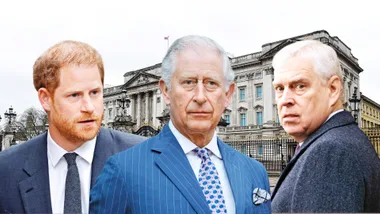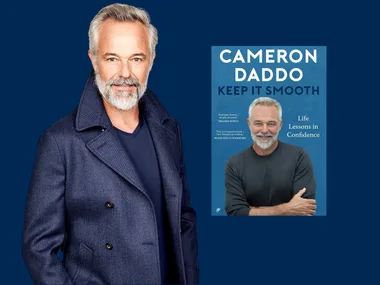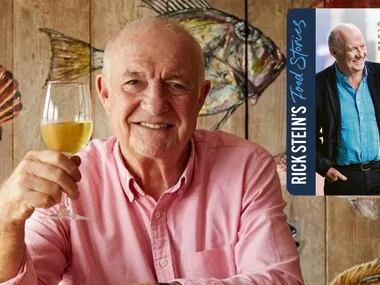Literary Fiction is one of our favourite genres and set to be one of the most hotly contested categories at the Australian Book Industry Awards this week.
Here, we review all four shortlisted books to help you decide which order to read them in!

The Natural Way of Things (Charlotte Wood, Allen & Unwin, Allen & Unwin)
Charlotte Wood’s astonishing new novel opens with a chilling scene: two women wake from a drugged sleep to find themselves imprisoned in the desert.
They have no idea why they have been taken, who their captors are or what their intention might be. Soon there are joined by eight other women, and when heads have been shaved and strange uniforms donned, they are chained together and forced by guards to toil under a hot Australian sun.
As the days pass, the women learn about each other and what binds them to their su¬ffering, as well as share their hopes for rescue.
Only rescue doesn’t come, and when food begins to run low, it becomes apparent that the only rescue will be the one they can forge themselves.
The Natural Way of Things is a rattling good read and a stinging indictment of contemporary misogyny.

The Other Side of the World (Stephanie Bishop, Hachette, Hachette Australia)
Aside from its achingly haunting prose, this is a novel that will resonate with any migrant who has battled the pain of homesickness.
It floods over you like a wave, an unstoppable and often destructive force that can neither be rationalised nor controlled.
“The Other Side Of The World was inspired by the migrations of my grandparents, who moved to Australia as Ten Pound Poms in the 1960s,” author Stephanie Bishop tells The Weekly.
Stephanie herself felt her grandparents’ sense of displacement when she moved to Cambridge in the UK to go to university and has imbibed central character Charlotte with these emotions.
“I never understood the cost of migration until I moved to England and then back to Australia,” she says. “It was when my own life started to repeat key experiences from the lives of my grandparents that the novel really came alive. Looking back, I can see that I used Charlotte to think through my own experience of homesick and restlessness.”
It is 1963 and Charlotte is a new mother with a second baby on the way, living in the damp English countryside. She should be drunk with the joys of motherhood. Instead, she is tired, weepy and desperately unsettled.
There’s no time to work – Charlotte is a painter – and no energy to make plans to¬ fix things. Her favourite moment of the day is when, early in the morning, she walks through the fields around her house, husband Henry and little Lucie rugged up against the cold, Charlotte the only one happily embracing the weather.
Henry is an Anglo-Indian university professor with a hatred of England’s weather who wants to move his family to Australia.
He has read the adverts about a promised land and thinks this could be the solution to their rut. Charlotte is exhausted and before she knows it, she’s given birth for a second time and is on her way to a new life she never wanted.
What happens next is at once engrossing and shocking in a literary tour de force, as passions take over in the heat of the Perth summer and a marriage unravels.
Will Charlotte and Henry make it or has this move displaced them forever?

The Secret Chord (Geraldine Brooks, Hachette, Hachette Australia)
It took Geraldine Brooks three years to write this powerful retelling of the story of King David, during which time she immersed himself in what she calls “physical research”, literally stepping back into Biblical times.
“I travelled to the land and walked the places David is said to have walked, herded sheep in the Judean desert, rode mules, climbed the hills where he hid out from Shaul during his outlaw years. I spoke with military strategists and historians to get a fix on Second Iron Age warfare and tactics, researched early Hebrew music, wandered archaeological sites to get an accurate picture of the material culture: what did they mean by a ‘palace’? What did they eat for breakfast? What kinds of stones do you use in a sling?” the author explains.
And it is exactly this tangible feel for the minute details of this ancient world that makes The Secret Chord chime … this and the complexly drawn character of David himself.
The King is both hero and tyrant, visionary and despot, and the contradictions are tantalising. Brooks’ David is a pragmatist with a genius for warfare, and while his appetites are huge and his actions bloody and often reprehensible, his remorse, deep faith, sense of family and prodigious musical talent, plucking exquisite chords from his harp, offer compelling glimpses into a tortured soul.
“This is a man capable of great love, but also ruthless cruelty,” says Brooks. “He makes great art; he massacres innocents. He’s beloved and he’s hated. You absolutely cannot simplify him, neither to lionize nor to deplore. I think writers and theologians who have attempted to do that have robbed this story of its depth.”
Brooks’ story also gives voice to the women in this brutal world and their stories are telling. The rape of David’s only daughter by his indulged and morally bankrupt son is a scene of hideous violence, and in the retelling Brooks says she thought of Saddam Hussein’s sons, Uday and Qusay .
“They also were morally lost, immensely protected sons of a powerful ruler, free to rampage through Baghdad, raping and killing and torturing citizens with no fear of restraint or consequences.”
The whole tale is revealed through the reasoned eyes of Natan, David’s prophet and often his conscience. This device allows a watchful distance so the tales unfurl with a dramatic intelligence that feels as if we really are ¬flies on the wall of the Bible. Mesmerising.

The World Without Us (Mireille Juchau, Bloomsbury Publishing, Bloomsbury)
Australian writer Mireille Juchau weaves an irresistible, dream-like quality around her new novel. The Müller family live a secluded life on their farm in a remote, rainforest town.
Affected by a significant loss, a deep sadness hangs over each of them. Evangeline is an absent mother, wandering all day with an empty pram, while Stefan, her husband, reaches most easily for the bottle.
When an outsider, Jim, encounters Evangeline on the banks of a river, events are set in motion that will change them all.
The Australian Book Industry Awards, proudly sponsored by The Australian Women’s Weekly, will take place in Sydney on Thursday night.











